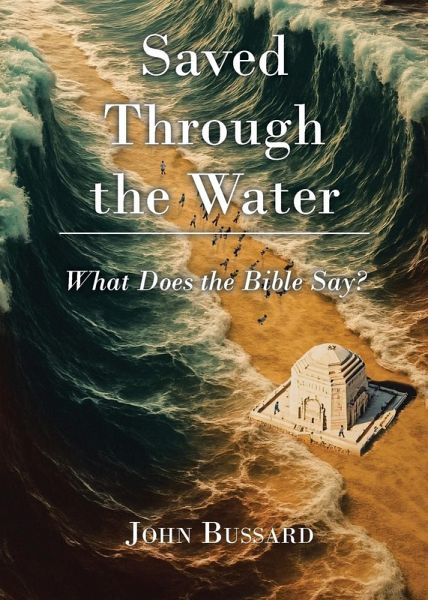
Saved Through the Water
What Does the Bible Say?

PAYBACK Punkte
6 °P sammeln!
Soteriology is the study of salvation in the context of religion. The apostle Peter defined this process for Christian followers in his address to the children of Abraham on Pentecost in Jerusalem, forty days after the Jewish celebration of Passover there. Peter's message, as recorded in Acts of the Apostles, chapter two, clearly identified Jesus Christ as the Messiah by citing Old Testament prophecy. Having heard this message, the gathered crowd questioned Peter about what they should do with this information. Peter's response defined Christian soteriology: Repent and submit to immersion in t...
Soteriology is the study of salvation in the context of religion. The apostle Peter defined this process for Christian followers in his address to the children of Abraham on Pentecost in Jerusalem, forty days after the Jewish celebration of Passover there. Peter's message, as recorded in Acts of the Apostles, chapter two, clearly identified Jesus Christ as the Messiah by citing Old Testament prophecy. Having heard this message, the gathered crowd questioned Peter about what they should do with this information. Peter's response defined Christian soteriology: Repent and submit to immersion in the name of Jesus Christ for the remission of sins, and you will receive the indwelling presence of the Holy Spirit. This book will briefly lead the reader through Old Testament history, following the flow of water through which the Hebrew nation-including the faithful, such as Noah and Moses-traveled. It will trace this journey to the Jordan River in the New Testament and ultimately to the "baptistry" for immersion in the New Covenant. John, Jesus's cousin, was immersing repentant followers in the Jordan. When Jesus came to John, he was immersed there, beginning His ministry. In this act, he declared an example of righteousness for those who would follow Him.













